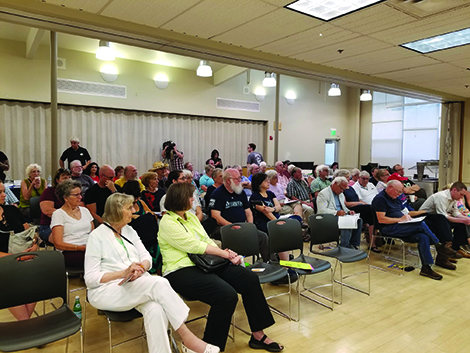Preparing emotionally for retirement
Making the decision to retire can be difficult. It’s easy to get excited about the prospect of not working and overlook what a job means to our identity and life purpose. With retirement planning, it can be easy to focus on finances rather than lifestyle. Yes, it is important to plan for maintaining financial responsibilities without a steady paycheck, but equally important questions are: How do I emotionally prepare for retirement? What am I going to do?
“Work structures us and gives us routine in our lives,†says psychologist Louis Primavera, co-author of the 2012 book “The Retirement Maze: What You Should Know Before and After You Retire.â€â€œWe plan around work. It is part of our identity. We go to a social gathering and people say, ‘What do you do?’â€
When emotionally preparing for retirement, be sure to take into account identity, purpose and relationships.
What will I do with my time?
Lack of activity will often lead to depressed mood, lack of motivation and poorer health. One exercise I often do with my patients is have them plan out activities ahead of time: What brings you pleasure and when do you want to do it?
For example, scheduling a visit to the YMCA or a call with a friend to invite them over for tea. After completing the activity, I encourage them to think about how pleasing that was or how accomplished they feel afterwards.
Sometimes, without structure or routine, it can be difficult to motivate yourself to do an activity, but when you refer back to your activity-planning worksheet, it can encourage you to act even if you don’t feel like it.
How can I still be intentional with my life and set goals?
Before setting goals, it can be helpful to think about your values and creating goals that align with them. What is most important to you?
One of my favorite questions to ask patients is, “If you were receiving a lifetime achievement award, what would you want other people to say about you? Once you’ve identified the values that are most important to you, what type of goals will help you to live out those values?â€
How will I share my professional expertise, personal knowledge or legacy?
What professional organizations can you join? Connect with local universities and see if they have a mentoring program to mentor young people in your chosen career. Use your talents for your favorite non-profit. For example, if you are an accounting guru, can you lend your skills to your local house of worship?
How do I make my health a priority?
The best retirement plans mean nothing if you don’t have the health to enjoy it. Exercise and movement is critical.
My spouse and I are accustomed to having our independence during the day, so how can we prepare to be around one another full-time?
It is very common for couples to go through turmoil during transitions like retiring. It’s helpful to talk with your partner about expectations: Who will be responsible for things such as household chores? How often will you do things together/separately?
When things don’t go smoothly, it can also be useful to talk to a therapist to learn how to communicate more effectively.
How do I find identity outside of my career?
Try new things, see if you like it, and be open-minded. Maybe you didn’t like a particular activity when you were younger, but it’s worth trying again. Be open to the idea that you may have changed, and be curious about your interests. Also, just because you have retired doesn’t mean you are a different person. Immerse yourself in things you know and love.
Will I miss the social aspect of being around people all day at work?
Days and weeks can feel daunting when you think that there is no structured time. Some people find it helpful to plan out their weeks, at least at the beginning, to include all kinds of activities: Down/quiet time, time with friends, volunteering, etc. After planning your time, make sure to evaluate how it went.
Life is going to be different after retirement. Your identity will change. Sometimes it will be fun and exhilarating, and other times may be dull and difficult. Have patience while you make the transition.
Heather Carroll, a behavioral health specialist, wrote this article for Iora Primary Care’s blog.

